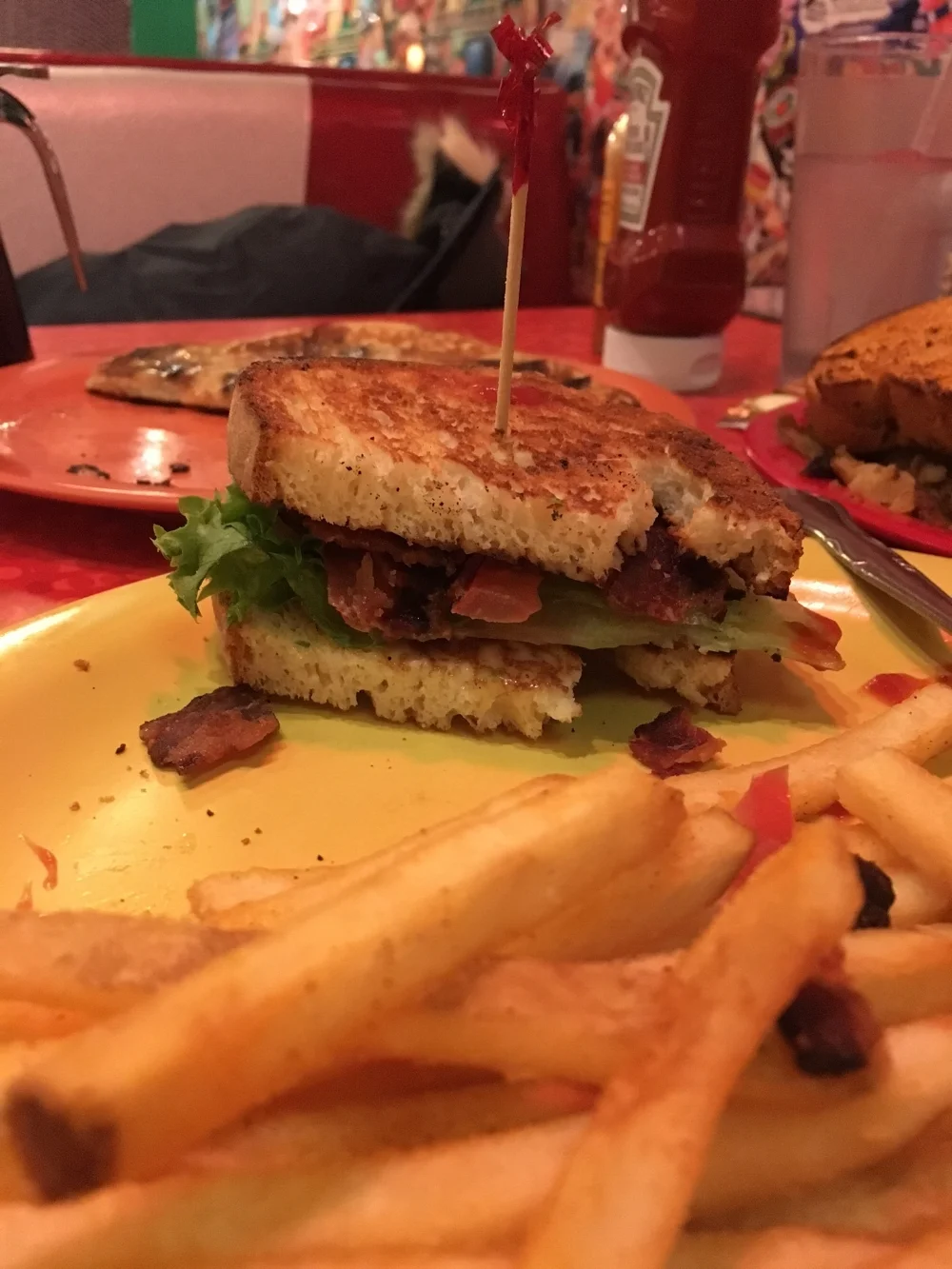Before we discuss what a cheat meal is, let’s clarify what it is not…
Cheat meals are not cheat days or entire weekends of diet debauchery. They are not an all-out eat-till-you-can’t-move, want-to-puke-fest. And if you’re not cutting calories and increasing your training, and have cheat meals multiple times a week, it’s not a cheat meal—you probably just have a crappy diet. Cheat meals require planning and self-control. A really big component is the planning part. When done right, ordering a really enjoyable meal that is off of your “typical” meal plan can not only feel totally guilt-free but also make you more successful in accomplishing your fat loss goal.
“Cheat meal” implies that you are cheating on your diet, which is actually not the case. A “cheat meal” is a planned, built-in component. You are not cheating on anything. For this reason, you may seem it also referred to as a “refeed meal,” which is definitely more appropriate.
Why Should I Have One?
The psychological component is real. For those of you who have embarked on a depletion diet for fat loss, you know the trials and tribulations of sweet potato, asparagus, and grilled chicken on repeat. It’s not that clean food can’t be yummy and delicious, it’s just that it will never be pizza, donuts, and penne vodka. One 2015 study proposed that “including planned hedonic goal-deviation activities in the initial goal implementation plans may actually be beneficial for long-term goal attainment, such as by occasionally having a chocolate cake when on a diet.” (Journal of Psychology 2015)
Researchers found that when planned cheats are built into a long-term plan, they help reinforce willpower, self-regulatory ability, and motivation. And no surprise, it also helped improve positive emotions around the experience.
The reason it is so important to plan your cheats is that we sometimes overemphasize a lapse in our diet. Making one bad choice can lead to total abandonment of the goal altogether or cause us to say, “Oh, what the hell.” Here is where cheat meals turn into cheat weeks. Breaking up a long-term goal into intermittent goals has shown to make people more successful with sticking with it.
When Should I Have One?
Life gives us plenty of opportunities to have a cheat meal. If you’ve been on a diet for even a week, you know how difficult it can be to avoid the social activities with the best non-diet foods. When embarking on a long-term weight loss goal, take a look at the month ahead. See what activities may be a good time to have a planned cheat meal that naturally works with your important life events. These may include your birthday, anniversary, a wedding, or even big holiday like Thanksgiving. In my experience, diets are really good at ruining holidays and holidays can be really good at ruining diets. Rather than let that happen, plan a cheat meal for yourself. All this means is that the week or weeks leading up require heightened focus and discipline on your healthy dietary habits.
The number of cheat meals you can have ranges from 1 meal every 5 days to 1 meal every 14 days. This is all going to depend on where you are at in your fitness journey. The reality is, if you are currently storing a lot of extra body fat, you should not have one as often. If you are on the leaner side, you can get away with having one more often. Below is a general guideline based on body fat percent.
What Should It Look Like?
It can really look like whatever you want; however, to get the most out of it, choose mostly carbohydrates…Yea, I know it sounds horrible ☺
Excess carbohydrate consumption in the body will go to refueling glycogen storages (in your muscles) first, therefore less is available for being stored as fat. Refueling your muscles with glycogen could have a great training effect for your next few workouts and storing less fat is always a good thing when the goal is fat loss.
Sushi Rolls – Mostly carbs and protein
Pasta and a glass of wine
Waffles with syrup
Bagel
What Do I Do After?
You may or may not wake up the next morning not feeling great, or less lean than you were prior to your cheat meal. Don’t stress.
Drink a lot of water. Chances are that part of your temporary weight gain is due to retaining water from your high carb meal. Drinking more water will up-regulate the hormones that make your body release water (a.k.a. you’ll pee more).
Go back to your normal diet. Do not compensate the next day and ditch your healthy habits. Have a normal day.
Workout a little bit harder or for a few minutes extra. You’ll probably feel a little stronger than if you were in a more depleted state, so take advantage of it with some heavy weights.



